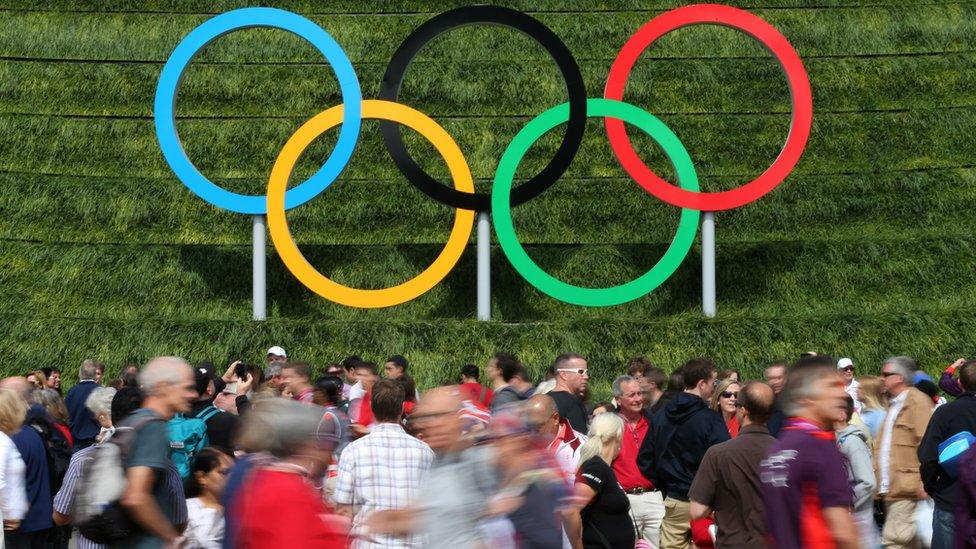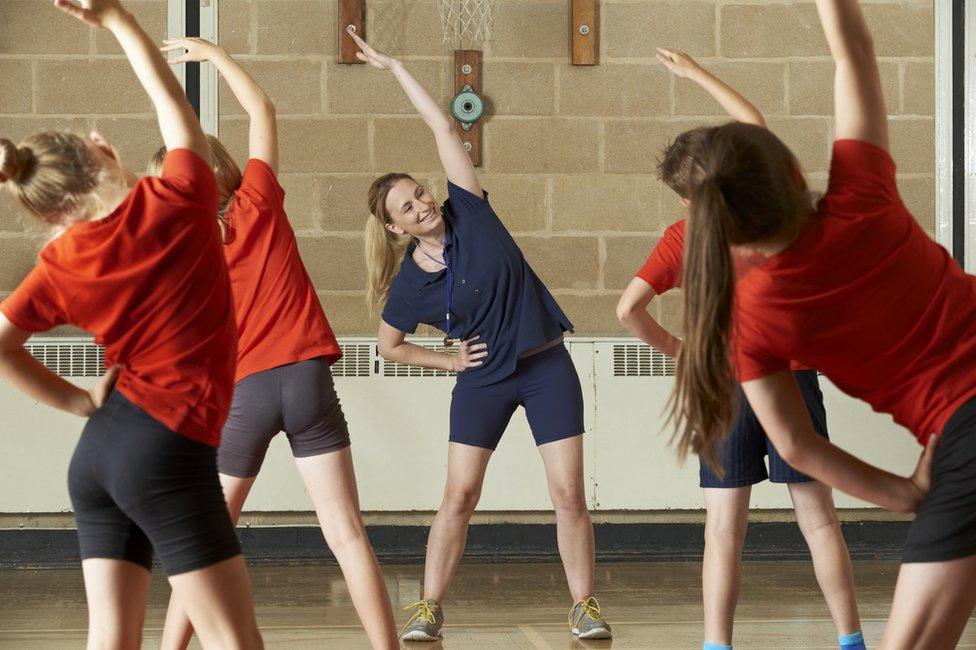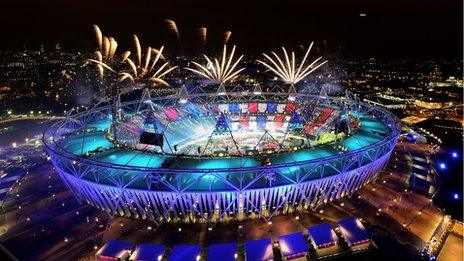Sport England figures show drop in sports activity since London 2012
- Published
- comments

According to Sport England. 15.8 million people play sport or exercise at least once a week
The number of people playing sport in England has fallen since the 2012 London Olympics, despite the Games' pledge to "inspire a generation."
Latest figures, external show 15.8 million people play sport or exercise at least once week, a drop of 0.4% since 2012.
Former Sports Minister Richard Caborn said the fall was "disappointing" and a sports charity said the Games' promised long-term legacy had not yet emerged.
Sport England said participation had risen by 1.7 million since 2005.
Figures show the number of once-weekly participants has dropped by 8,700 since the 2012 London Olympic Games.
Sport England data reveals the biggest decline is among people from ethnic minorities and economically-deprived groups.
BBC analysis of the data found five of the nine regions in England recorded a decline in sports participation.
'Legacy hasn't delivered'
The biggest drop was in Yorkshire and Humber where a 1.7% decline equates to 67,100 fewer people regularly participating in sport or exercise.
Helen Marney, from the Yorkshire Sport Foundation, said London 2012 provided an initial boost but a long-term legacy had yet to emerge.
"Like other parts of the country, we did see more people wanting to do sport after 2012, but we have to remember it takes more than an Olympics games on TV to get people active," she said.
"A lot of the reasons why people don't get into sport come down to the individual themselves. Do they have the time, money and the facilities nearby?
"But yes, I would say that the legacy of London 2012 hasn't delivered what we wanted to see."

Yorkshire and Humber has seen the largest drop in participation
Doncaster, in South Yorkshire, saw the biggest fall of any area in England, registering a decline of 13.2%. Oxford saw the biggest increase, of 14%.
Data shows there are continuing challenges in getting people from economically-deprived or ethnic minority backgrounds involved with sport and exercise.
People in the poorest social groups saw the biggest fall in participation.
Over the four-year period this group saw a 2.9% decline in activity, a fall of 365,100 people.

The number of young people playing sport has increased since London 2012
Those from an ethnic minority background also saw a decline in participation over the same period.
According to the data, 80,300 fewer people from this group were playing sport, a fall of 1.4% from 2012.
However, the figures do show that the number of young people aged between 16 and 25 playing sport has increased since London 2012 with 3.8 million under-25s now taking part, an increase of 1.4%.
Those working within grassroots sport say there is no one single reason to explain changing rates of participation.
Sport England, however, says that since 2010 the amount that local councils invested in sport had fallen by £389m.
According to its figures in 2013/14 local authorities invested just over £1bn in sports projects, a fall of 27% compared to 2009/10.
Phil Smith, Sport England's director of sport, said: "Since London won the right to host the 2012 Games, over 1.7 million more people in England are playing sport regularly.
"That means we're the first host nation ever to deliver the legacy of getting more people active.
"Building on that success we now want to look beyond the numbers; to how sport changes lives and is a force for social good.
"This is why Sport England is tripling the amount it invests in tackling inactivity and focusing on people who are typically much less active."
Richard Caborn, who was Sports Minster in 2005, when London was awarded the 2012 Games, said: "The world 'legacy' was used in our bid from the start and it was taken very seriously. We wanted a million more people to be doing two hours of sport a week as part our plan.
"I'm disappointed that since 2012 there's been a fall but going forward we have to make sure that we get more money into grassroots sport. That means funding things like Parkruns and community projects and not just focusing on giving big sport associations lots of money and then letting them to decide how best to use it."
As part of its annual Active People's Survey, Sport England interviewed 170,000 people by telephone, asking them how often they participated in sport or regularly exercised.
Data for sports participation in Scotland, Wales and Northern Ireland is collected separately and by using a different survey method, meaning it is not directly comparable.
The BBC has also excluded data collected about the City of London and the Isles of Scilly due to the small sample size of the surveys conducted.
- Attribution
- Published17 August 2013
